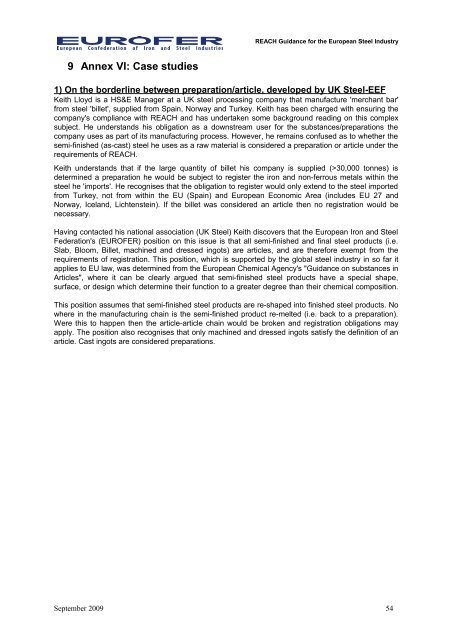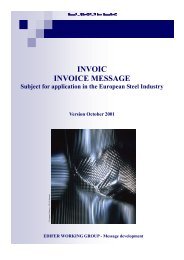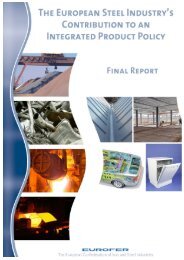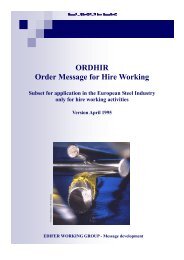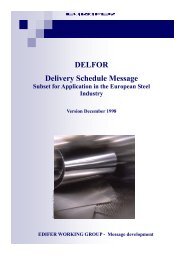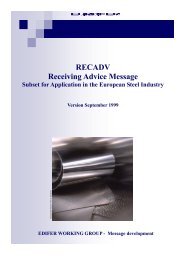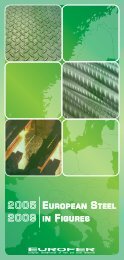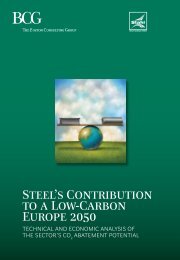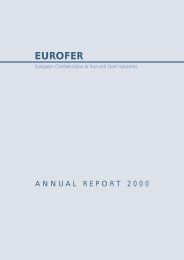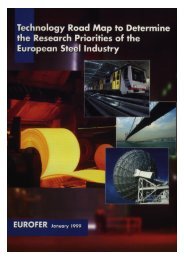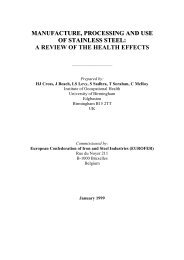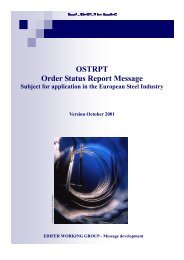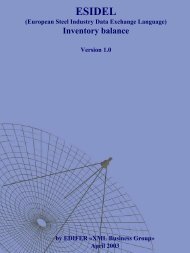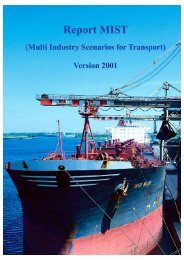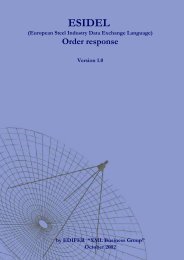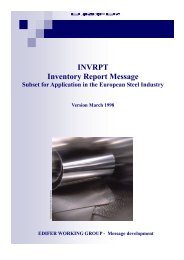EUROFER REACH guidance for the European Steel Industry. 09.09 ...
EUROFER REACH guidance for the European Steel Industry. 09.09 ...
EUROFER REACH guidance for the European Steel Industry. 09.09 ...
You also want an ePaper? Increase the reach of your titles
YUMPU automatically turns print PDFs into web optimized ePapers that Google loves.
9 Annex VI: Case studies<br />
<strong>REACH</strong> Guidance <strong>for</strong> <strong>the</strong> <strong>European</strong> <strong>Steel</strong> <strong>Industry</strong><br />
1) On <strong>the</strong> borderline between preparation/article, developed by UK <strong>Steel</strong>-EEF<br />
Keith Lloyd is a HS&E Manager at a UK steel processing company that manufacture 'merchant bar'<br />
from steel 'billet', supplied from Spain, Norway and Turkey. Keith has been charged with ensuring <strong>the</strong><br />
company's compliance with <strong>REACH</strong> and has undertaken some background reading on this complex<br />
subject. He understands his obligation as a downstream user <strong>for</strong> <strong>the</strong> substances/preparations <strong>the</strong><br />
company uses as part of its manufacturing process. However, he remains confused as to whe<strong>the</strong>r <strong>the</strong><br />
semi-finished (as-cast) steel he uses as a raw material is considered a preparation or article under <strong>the</strong><br />
requirements of <strong>REACH</strong>.<br />
Keith understands that if <strong>the</strong> large quantity of billet his company is supplied (>30,000 tonnes) is<br />
determined a preparation he would be subject to register <strong>the</strong> iron and non-ferrous metals within <strong>the</strong><br />
steel he 'imports'. He recognises that <strong>the</strong> obligation to register would only extend to <strong>the</strong> steel imported<br />
from Turkey, not from within <strong>the</strong> EU (Spain) and <strong>European</strong> Economic Area (includes EU 27 and<br />
Norway, Iceland, Lichtenstein). If <strong>the</strong> billet was considered an article <strong>the</strong>n no registration would be<br />
necessary.<br />
Having contacted his national association (UK <strong>Steel</strong>) Keith discovers that <strong>the</strong> <strong>European</strong> Iron and <strong>Steel</strong><br />
Federation's (<strong>EUROFER</strong>) position on this issue is that all semi-finished and final steel products (i.e.<br />
Slab, Bloom, Billet, machined and dressed ingots) are articles, and are <strong>the</strong>re<strong>for</strong>e exempt from <strong>the</strong><br />
requirements of registration. This position, which is supported by <strong>the</strong> global steel industry in so far it<br />
applies to EU law, was determined from <strong>the</strong> <strong>European</strong> Chemical Agency's "Guidance on substances in<br />
Articles", where it can be clearly argued that semi-finished steel products have a special shape,<br />
surface, or design which determine <strong>the</strong>ir function to a greater degree than <strong>the</strong>ir chemical composition.<br />
This position assumes that semi-finished steel products are re-shaped into finished steel products. No<br />
where in <strong>the</strong> manufacturing chain is <strong>the</strong> semi-finished product re-melted (i.e. back to a preparation).<br />
Were this to happen <strong>the</strong>n <strong>the</strong> article-article chain would be broken and registration obligations may<br />
apply. The position also recognises that only machined and dressed ingots satisfy <strong>the</strong> definition of an<br />
article. Cast ingots are considered preparations.<br />
September 2009 54


